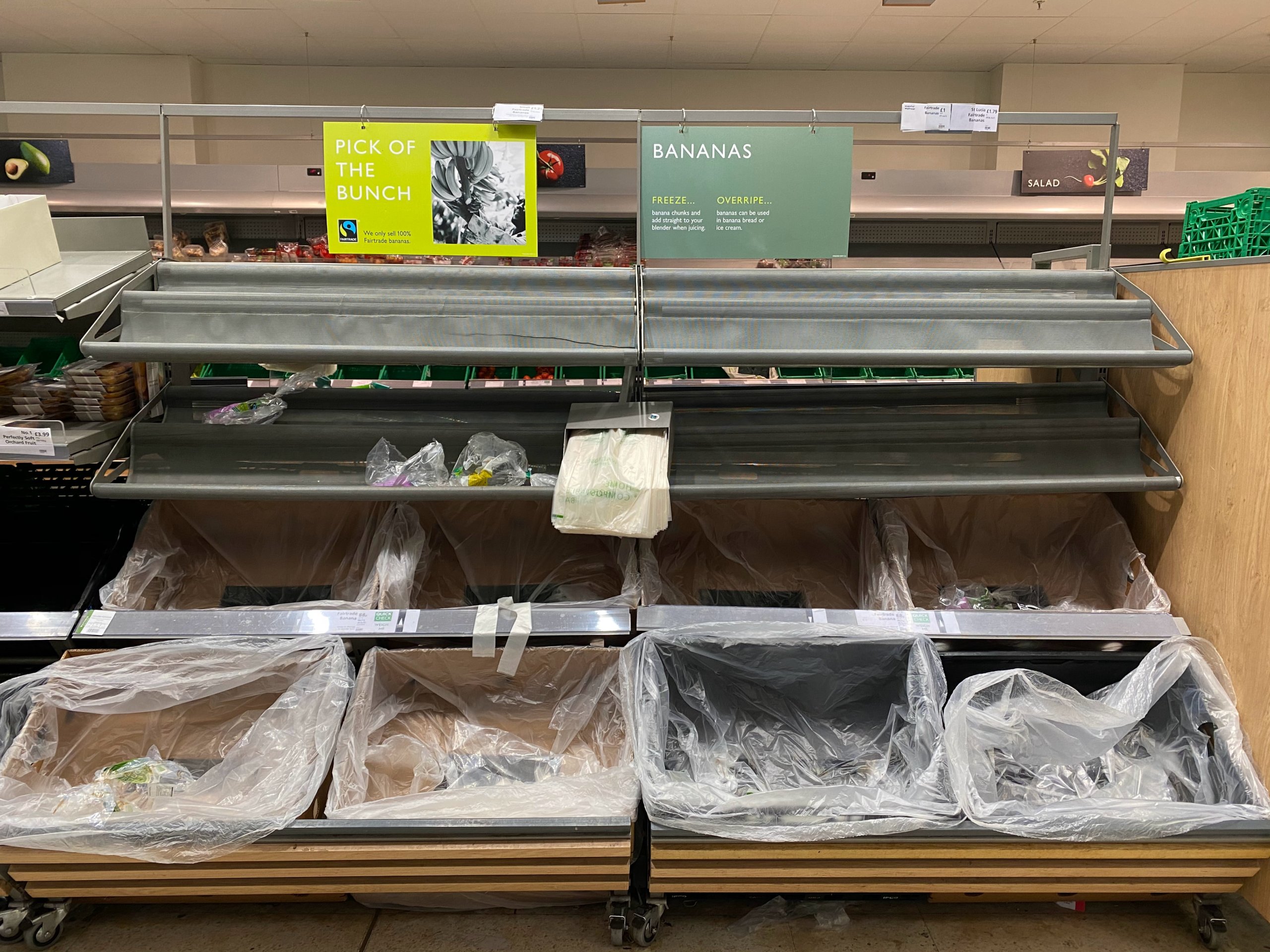Your financial wellbeing is more important than ever before
In these uncertain times, access to financial support to help you manage your financial wellbeing is more important than ever before. Financial wellbeing is heavily linked with physical wellbeing. The two go hand in hand.

As the Federal Government announces various measures to manage the outbreak of Covid-19, the level of uncertainty at this time is stressful for us all.
For many of us, the basic priority is to have a roof over our heads, have enough essentials and stay safe. This becomes increasingly difficult as supermarket supplies are depleted and job security is threatened. Even if you keep your job, it’s possible you may be earning less for a while.
It can be hard to navigate the available support so we’ve put together a summary of the Federal Government’s key relief measures to assist you with understanding the help that could be available to you.
There are also some suggestions here about how to manage your finances and where to seek help if you’re struggling.
We don’t have all the answers, but we do know this: having a Spending Plan increases your ability to make well-informed financial decisions and improves your financial wellbeing.
A Spending Plan with help from a Spending Planner empowers you to manage your financial life.
Stay safe and well.
The team @ Bright Spenders
Find out more about creating a Spending Plan in this blog post. If you’d like to have a complete free, confidential chat to us about your finances then please reach out.
What can you do right now to financially navigate this crisis?
Creating a Spending Plan to check on your exact financial position right now is a great start.
Then check your eligibility for any of the newly announced financial assistance packages available from the Government. More on this below.
Here are some ideas to reduce your ongoing expenses:
1. Reduce your spending
This is easier said than done for a lot of us but it’s a good habit to have.
Complete our Snapshot tool to see your overall position right. Only enter your highest priority expense (let’s face it any holidays, shows, or eating out you would have been doing will now not be happening). Then enter any money you know will be coming in (including any government assistance that you’re aware of – see below for notes about these). What’s the difference?
Any negative (ie red) figure means you need to prioritise reigning in your spending and cutting back on non-essential spending. In black? Good work, read on, it may assist.
I’m in the red – what can I do?
Start by cancelling nice-to-haves like gym memberships, personal treats like spas, online subscriptions you pay for but aren’t using much, etc.
Make a shopping list of ingredients needed to make daily meals lasting for several days or up to two weeks (the less you go to the shops the better right now!). Take it with you so you ONLY buy essentials.
Barter with a neighbour. Exchange toilet paper for dry pasta, for example. You get the point.

2. Got a mortgage?
If in financial hardship contact your lender to discuss options like:
- Changing the terms of your loan.
- Temporarily pause or reduce your repayments. This is called a hardship variation.
Some banks are offering six-months repayment deferrals on mortgages for customers who’ve been impacted by coronavirus. If they refuse, contact the Australian Financial Complaints Authority (AFCA) to make a complaint and get free, independent dispute resolution.
Even if you haven’t and need help, contact your lender. When you do, ask what options you have and how each option could increase the cost and life of your loan.
What else can I do?
Do you have an offset account or equivalent? If yes and are ahead with payments, sparingly withdraw the extra and use it to cover essential expenses like groceries, utilities and mortgage repayments.
Change a loan to interest only to lower initial repayments. Be mindful that at the end of the interest-only period, the loan will revert to a principal and interest loan. You’ll start repaying the amount borrowed, as well as interest on that amount. This means higher repayments. Make sure you can afford it.
Financial counselling is also a free and confidential service offered by community organisations, community legal centres and some government agencies. They’ll listen to your problems and help you with things like bills or fines you’re struggling to pay. They don’t offer legal advice.
Call the National Debt Helpline — 1800 007 007 or find one online: https://moneysmart.gov.au/managing-debt/financial-counselling
Financial assistance to individuals and households
The Government is providing financial assistance to Australians. This assistance includes income support payments, payments to support households and temporary early releases of super.
Check if any of the summaries we’ve provided, with links to more information, are relevant to you.
Payments to support households
The Government is providing two separate $750 payments to social security, veteran and other income support recipients and eligible concession cardholders.
The first payment will be made from 31 March 2020 and the second payment will be made from 13 July 2020. Around half of those that benefit are pensioners. The second payment will not be made to those eligible for the Coronavirus supplement.
Link to more information: https://treasury.gov.au/sites/default/files/2020-03/Fact_sheet-Payments_to_support_households_0.pdf

Income support
Over the next six months, the Government is temporarily expanding eligibility to income support payments and establishing a new, time-limited Coronavirus supplement to be paid at a rate of $550 per fortnight.
This will be paid to both existing and new recipients of JobSeeker Payment, Youth Allowance Jobseeker, Parenting Payment, Farm Household Allowance and Special Benefit.
Link to more information: https://treasury.gov.au/sites/default/files/2020-04/Fact_sheet-Income_Support_for_Individuals.pdf
Reducing deeming rates used for income testing
What investments actually earn is ignored and a set of deeming rules are used to work out an assumed return. The deeming rates of 1% and 3% will be reduced to 0.25% and 2.25% respectively, from 1 May 2020.
This is in recognition of the impact of the low-interest rates on savings and the Government expects that on average, those in receipt of the age pension will receive around $105 more in the first full year that the reduced rates apply.
Link to more information: https://treasury.gov.au/sites/default/files/2020-03/factsheet6providingsupportforretireestomanagemarketvolatility-25march2.pdf
Early access to super if you’re under financial hardship
While super helps people save for retirement, the Government recognises that for those significantly financially affected by the Coronavirus, accessing some of their super today due to financial hardship, may outweigh the benefits of maintaining those savings until retirement.
Apply online through myGov and if eligible, access up to $10,000 of super before 1 July 2020. It may be possible to access up to a further $10,000 from 1 July 2020 for approximately three months (exact timing will depend on the passage of the relevant legislation).
No tax is paid on released amounts and the money withdrawn won’t affect Centrelink or Veterans’ Affairs payments.
**Before taking this step though we recommend you take up all other offers of support, contacted lenders to freeze payments and have reduced your expenses as much as possible.**
Link to more information: https://treasury.gov.au/sites/default/files/2020-04/Fact_sheet-Early_Access_to_Super.pdf
Reducing the amount required to be drawn down from super sourced income streams
The Government is helping retirees to manage the impact of volatility in financial markets on their retirement savings by temporarily reducing super minimum drawdown requirements for account-based pensions and similar products by 50% for the 2019-20 and 2020-21 income years.
For example, Satish starts an account-based super pension on 1 July 2019 at age 62. The minimum drawdown rate is 4% (of his super pension account balance). Under these temporary measures, Satish is only required to drawdown 2% of his super balance (note there are other requirements).
It’s up to you to determine how much income you need from super to cover your retirement expenses. If you can survive on less, you now have the option to decrease payments and hopefully, make super last longer.
Link to more information: https://treasury.gov.au/sites/default/files/2020-03/factsheet6providingsupportforretireestomanagemarketvolatility-25march2.pdf
Government support for Business
The Government is supporting Australian businesses to manage cash flow challenges and retain employees. Assistance includes cash flow support to businesses and temporary measures to provide relief for financially distressed businesses.
Link to more information: https://treasury.gov.au/coronavirus/businesses

Leave a Reply